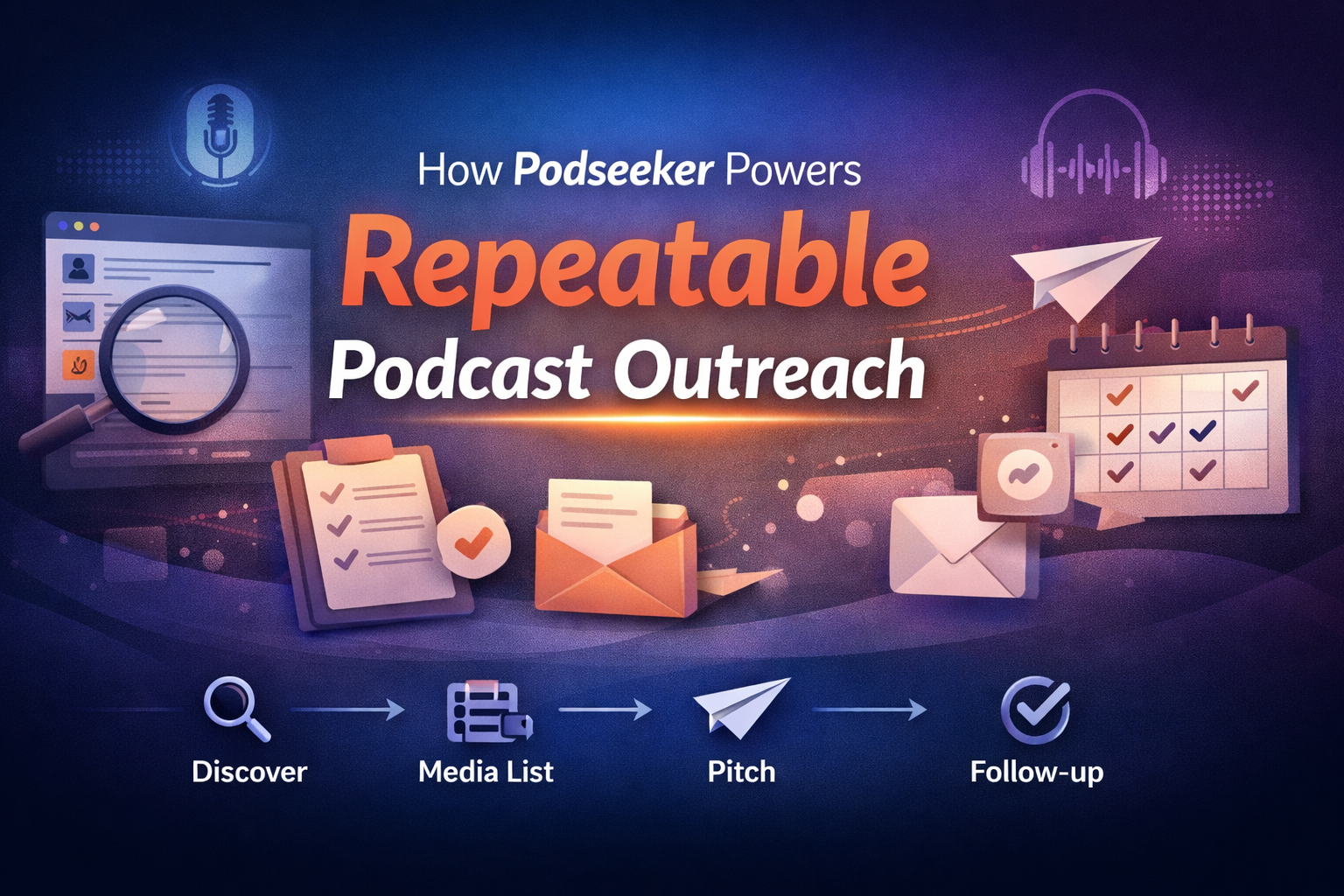You did it. Your pitch landed, the booking is confirmed, and your client is set to appear on a great podcast. Now comes the most important part: ensuring they deliver a standout performance.
A great interview can build authority and drive results; a poor one can be a wasted opportunity. As their PR advisor, your job is to prepare them to shine. This guide is your complete prep playbook, covering the essential steps to transform your client from just a guest into a memorable, high-value contributor that hosts will want to have back.
The Foundation: Frame the "Win-Win-Win" Mindset for Your Client
Before diving into tactics, set the stage for your client with the right mindset. A successful guest appearance is a win for everyone involved:
- Win for the Host: They get engaging, valuable content that delights their audience.
- Win for the Audience: They learn something new and feel their time was well spent.
- Win for Your Client: They achieve their PR goals and build a relationship with the host.
Instilling this mindset ensures your client focuses on providing value, which is the key to a great performance.
Step 1: The Pre-Interview Briefing – Your Prep Playbook
A great interview starts with your diligent preparation. This is where you, the PR pro, add immense value.
- Drill Down on the Show: Go deeper than your initial pitch research. Listen to 1-2 recent episodes to internalize the host's conversational style, pacing, and common segments.
- Know the Host: Check their LinkedIn or recent social posts for common ground that can help your client build rapport.
- Define the Audience: Remind your client exactly who they are talking to. Are they experts or beginners? This will shape their language and examples.
- Refine Talking Points: Based on your research, help your client refine their 3-5 core messages to align with the show's likely theme.
- Develop Core Stories: Facts tell, but stories sell. Work with your client to prepare 2-3 concise, engaging anecdotes or case studies that illustrate their key points.
- Confirm Logistics: Double-check the time zone, recording platform (Zoom, Riverside, etc.), and expected duration. Proactively ask the host if they have any standard questions your client should prepare for.
To do this research efficiently, a professional workflow is key. While you can do it manually, a dedicated podcast search engine centralizes the data you need—like recent episodes and host info—in one place, allowing you to build a comprehensive prep document for your client in a fraction of the time.
Step 2: The Tech & Environment Check (A Non-Negotiable Checklist)
Provide your client with a simple checklist to ensure they sound and look professional. Bad audio quality can ruin a great conversation.
- Microphone: Use an external USB mic. Avoid laptop mics.
- Headphones: Essential to prevent echo and feedback.
- Location: A quiet room with soft furnishings (carpets, curtains) to reduce echo.
- Notifications: Turn off all computer and phone notifications.
- Video (If Applicable): Check the background (tidy and professional), lighting (face well-lit from the front), and camera angle (at eye level).
Step 3: Coaching for the Live Interview – Key Performance Tips
This is showtime. Here are the key points to drill into your client before they hit "record."
- It's a Conversation, Not a Speech: Remind them to be authentic and bring positive energy. Their goal is to have an engaging back-and-forth, not deliver a monologue.
- Listen First, Then Speak: Coach them to answer the host's question directly before bridging to their talking points.
- Value Over Plugs: Focus on sharing helpful insights and stories. Mentions of their company or product should feel natural and contextual, not like a forced commercial.
- Give Actionable Takeaways: Advise them to leave the audience with 1-2 concrete tips or resources they can use immediately.
Step 4: After the Mic Drops – Your Post-Interview Protocol
Your job isn't over when the recording stops. Maximizing the placement is crucial.
- Prompt Thank You: Send a personalized thank-you email to the host on behalf of your client.
- Strategic Promotion: When the episode goes live, share it across your client's relevant channels (social media, email newsletter, etc.), making sure to tag the host and show.
- Build the Relationship: Your professionalism throughout this process makes you a valuable contact for the host, opening the door for future clients.
Wrapping It Up: Be the Partner Hosts Want to Work With
Great podcast guests are made, not born. They are the product of thoughtful preparation and strategic coaching. By mastering this prep process, you not only ensure your clients succeed but also build your own reputation as a top-tier PR professional who understands the podcasting landscape.
This entire process, from finding the show to preparing the guest, is part of a successful podcast outreach strategy. The more streamlined your process, the more placements you can land.
Try us risk free with a FREE 7 days trial.








